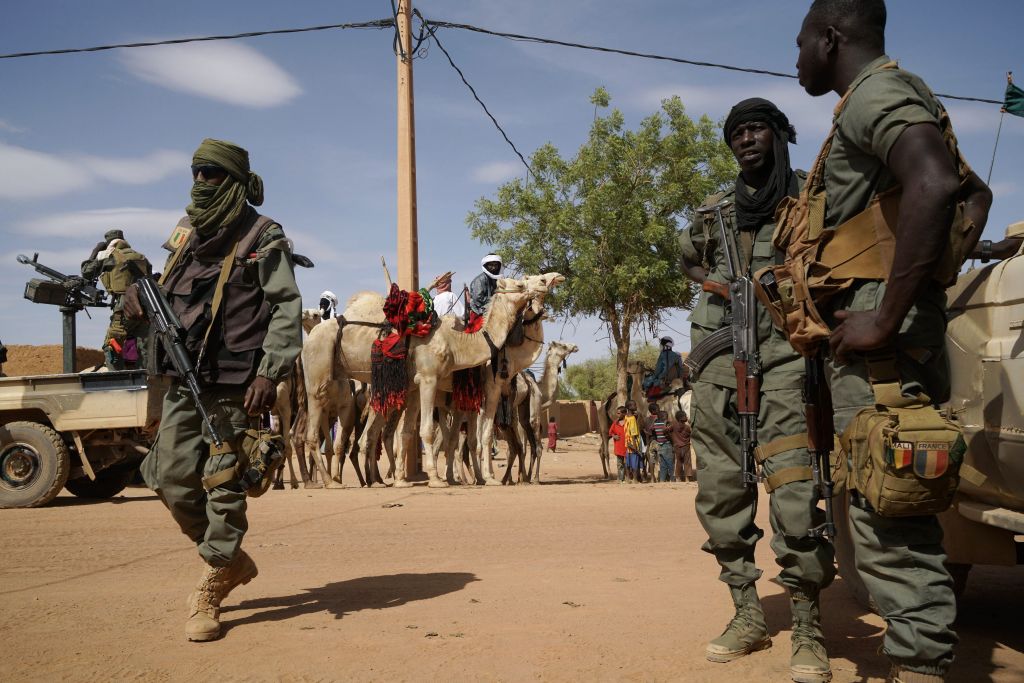Islamic State Sahel Province Expands Influence as It Gains Territory
ADF STAFF
The Islamic State-Sahel Province (IS Sahel) is gaining territory amid a security situation that has worsened since military juntas took power in Burkina Faso, Mali and Niger.
The group is expanding its operations around the Sahel after the drawdown of Western troops from the region and as al-Qaida-affiliated Jama’at Nusrat al-Islam wal-Muslimin (JNIM) ceded vast pockets of territory near the border between Mali and Niger. The two groups have fought each another in the past.
“There is a huge security vacuum after the withdrawal of the French and American military” from the region, Shaantanu Shankar, of the Economist Intelligence Unit, told Voice of America (VOA). Shankar added that Russian mercenaries financed by the junta governments are not likely to fill the security gap adequately.
A lack of employment opportunities in the region allows the group to recruit new members from marginalized communities that feel neglected by their governments.
“There are very few opportunities for people in rural Sahel, especially the youth,” Heni Nsabia, the Armed Conflict Location and Event Data project’s (ACLED) analysis coordinator for West Africa, told VOA. “But the other aspect is that people whose families and communities were targeted by state forces seek security, status and vengeance.”
Since last year, the violent extremist organization has tried to build support among local populations, according to a report by the Global Initiative Against Transnational Organized Crime (GITOC).
It is especially active in the Malian region of Ménaka, which it almost completely controls, except for the town of Ménaka. However, the group now controls all roads leading to and from the town, allowing it to regulate the movement of people and goods and profit from taxes collected through legal and illegal activities.
In early 2023, IS Sahel began engaging in conventional economic activity in the region, as it needed to revive supply chains and the local economy which it had previously damaged through attacks, according to the GITOC. The group also realized that long-term territorial control would be best achieved by forging positive relationships with locals.
“By positioning itself as a provider of livelihoods and actively involving itself in critical local economies (notably gold mining and goods smuggling), the group has sought to burnish its governance credentials,” the GITOC report said.
The group has encouraged communities to return by distributing leaflets, preaching in mosques, using social media to communicate its methods and values, offering protection, returning livestock it had stolen, and investing in rebuilding infrastructure it destroyed.
It also has punished nonaffiliated bandits and criminals. In July 2023, IS Sahel members amputated the hands and feet of two young people for extorting taxes in the group’s name, according to the GITOC.
There is anecdotal evidence that the group is employing its amended playbook in the northern Beninese department of Alibori, where it reportedly buys small boats for traders who smuggle goods across the Niger River into Niger. It also has begun taxing communities to access Benin’s W National Park and collecting zakat, a religious tax.
Since Alibori borders Nigeria, IS Sahel also could link itself with the Islamic State West Africa Province (ISWAP), which could risk a further regional resurgence of jihadist activity.
“It will be especially interesting to see how far IS Sahel seeks to build legitimacy among communities in areas where its territorial control is not yet cemented,” the GITOC report said. “If the group’s continued territorial expansion is accompanied by a further reduction in its reliance on violence in favor of relationship building, this would signal a medium-to-long-term shift in strategy, likely facilitating its regional durability.”


Comments are closed.